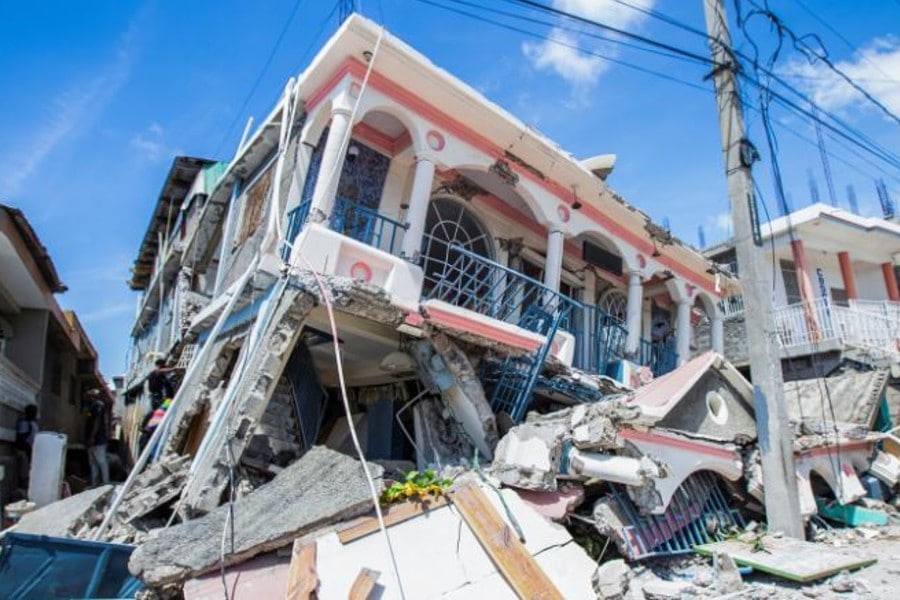
On August 14, the Haitian government declared a state of emergency after a 7.2 magnitude earthquake struck the country. According to Haiti's civil protection agency, at least 1,297 people are dead and more than 5,700 have been injured, overwhelming hospitals. The country has been hit hardest in the south, where the earthquake has flattened homes and triggered landslides, blocking roads that would carry vital supplies. Already, this earthquake is said to be more devastating than the 7.0 magnitude tremor in 2010.
For Haitians, this natural disaster follows what has already been a turbulent few months. Armed gang violence has escalated across the country since June, forcing schools to close, driving up the price of food and overwhelming police. And on July 7, Haitian President Jovenel Moïse was assassinated.
As those across the country continue their recovery efforts and prepare for Tropical Storm Grace, here are some practical ways you can help.
1. Educate Yourself
In times of crisis, it is easy for information to be miscommunicated and muddied. Especially since this emergency is happening outside of Australia. Therefore, it is imperative that we read widely across various news sources and share accurate and up-to-date information. It's also important to think about the kind of narratives we're spreading when we talk about Haiti. The country has had a long history of outside intervention from countries like the US and this has often resulted in further damage. We must recognise that Haitians understand what they need and how to get there, all we must do is follow their direction.
2. Donate
Money is the quickest resource to mobilise during a crisis, so if you're in a position to, donate. While not everyone can afford to part with money, especially during a pandemic, every little bit counts. And if you're looking for organisations to contribute to, our advice is always support local community initiatives and organisations first. These are the people with roots in the community, who understand it best and can therefore provide fast and targeted support. Their involvement will usually be the most potent and beneficial. Since Haiti is no stranger to natural disaster, the bones are already in place to funnel in money and resources.
Those headed to Port-au-Prince for medical attention can reach out to Haiti Communitiere. They are currently providing free accommodation for the families of those injured in the earthquake.
"The Lambi Fund's mission is to assist the popular, democratic movement in Haiti. Its goal is to help strengthen civil society as a necessary foundation of democracy and development."
Sakala is a youth community centre that provides a safe space in the heart of Haiti’s largest underdeveloped area. Their websites outlines their vision as, "Sakala works to the future where every child of Cite Soleil can join positive groups and programs, readily and freely available. We see a future where each of these children chooses a peaceful alternative to armed groups and violence."
Hope for Haiti have over thirty years experience responding to emergencies in southern Haiti. "Our team lives and works in the communities we serve, and is made up of Haitian doctors, nurses, program managers, and others dedicated to improving their own country," reads their website.
View this post on Instagram
If you're looking to support international aid organisations, ensure they're directly supporting Haitian-led, grassroots efforts. Doctors Without Borders have a long track record of providing medical support to areas of crisis, as they did after Hurricane Matthew. For more information on how to navigate donating, Haiti Advocacy Working Group (HAWG) have compiled a useful resource on best practices when donating money to Haiti.
3. Create awareness
Not all of us are in a position to assist financially, especially at this time. And that's okay. Social media can be a powerful tool, when used thoughtfully, to disseminate information and raise awareness. Check in with those in your immediate circle. Share statistics and the stories of those experiencing it first hand.



